#Napoleon LeBrun
Text
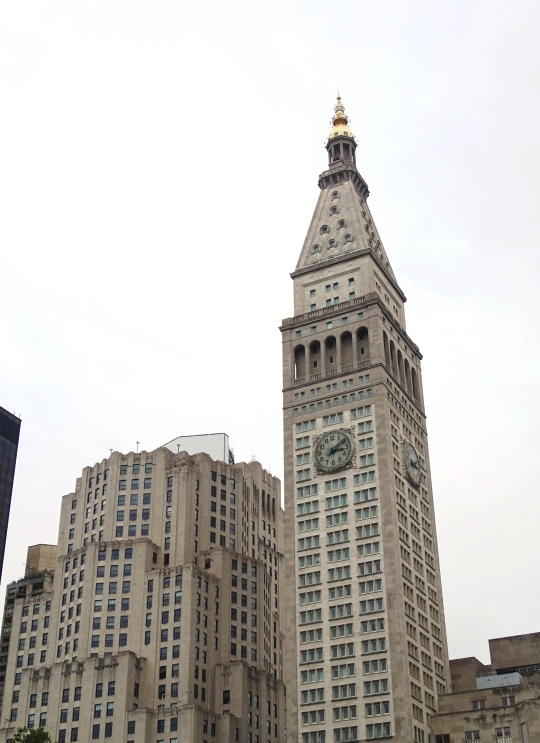
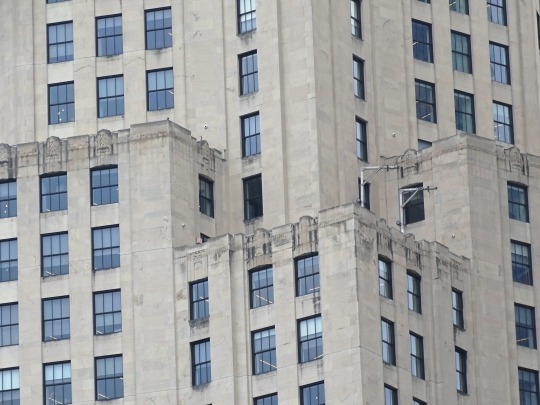
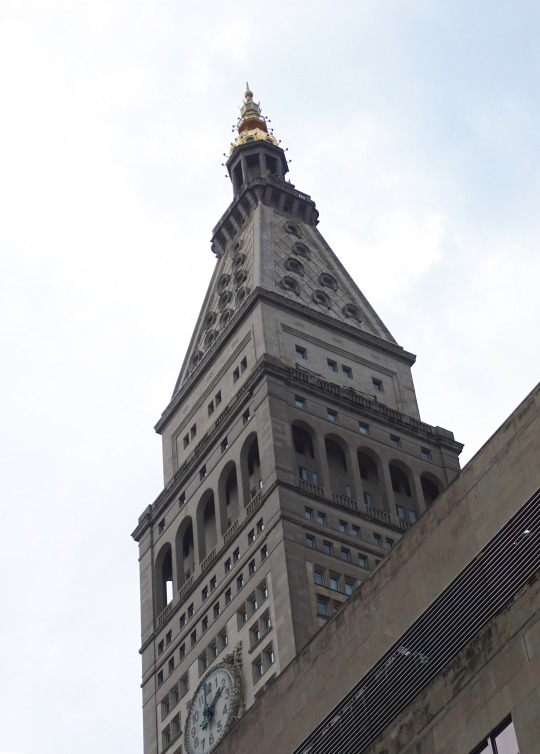
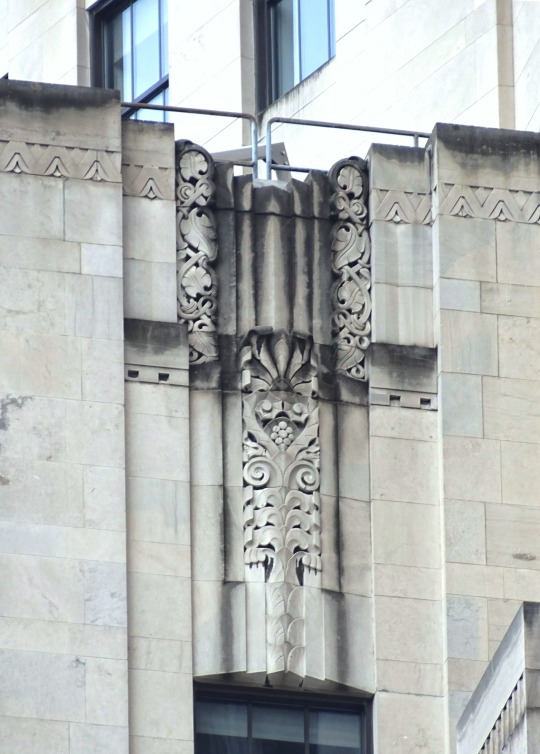

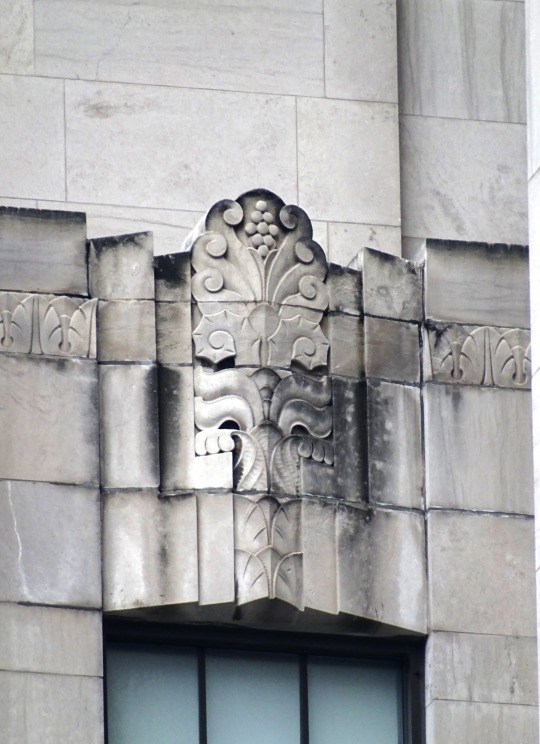
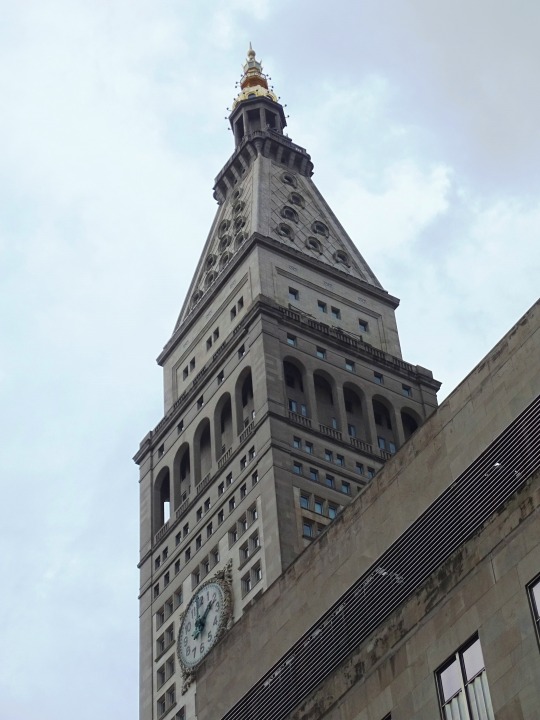

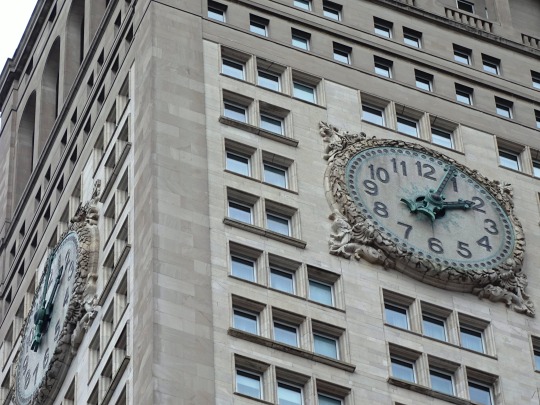
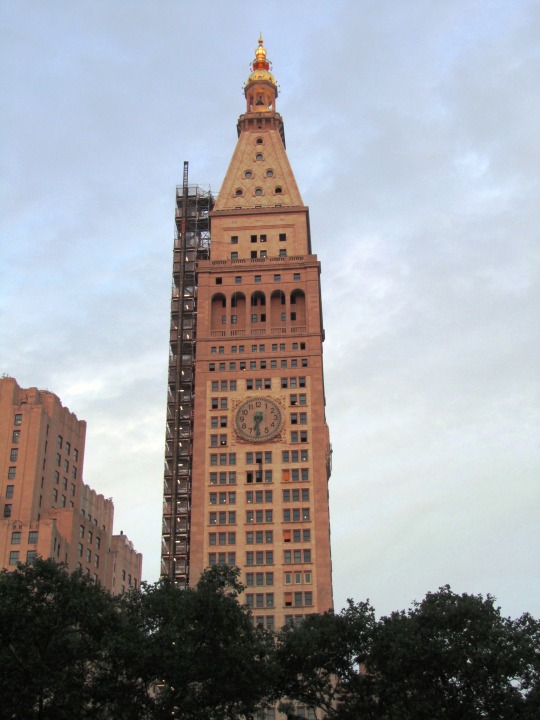

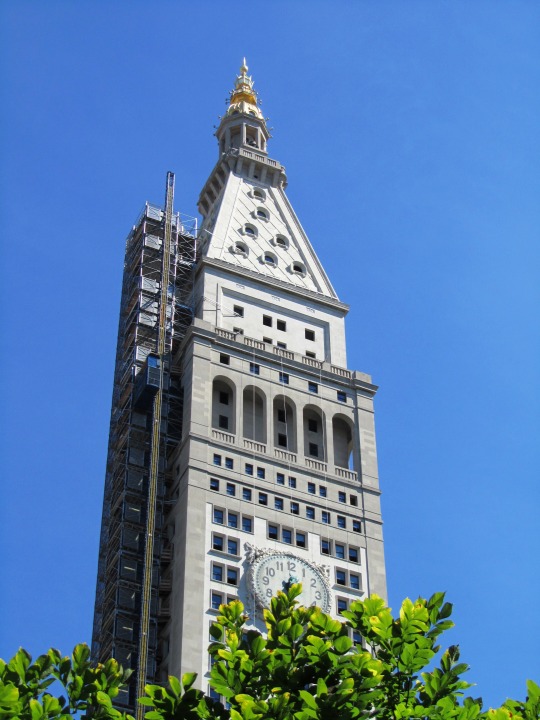
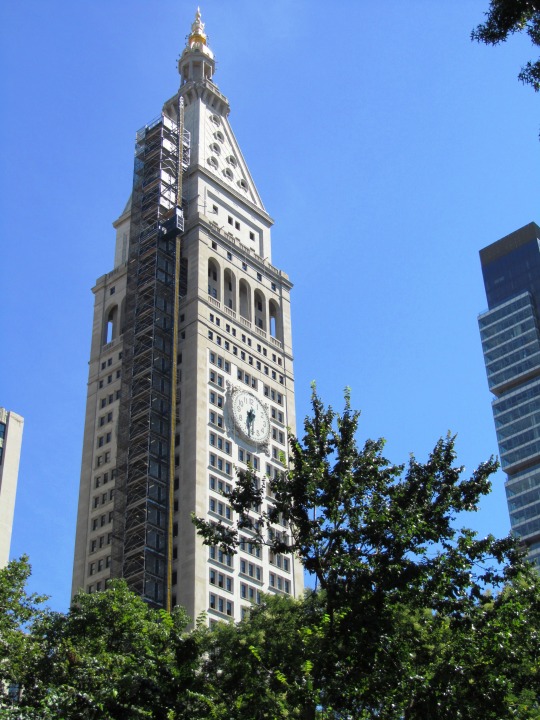
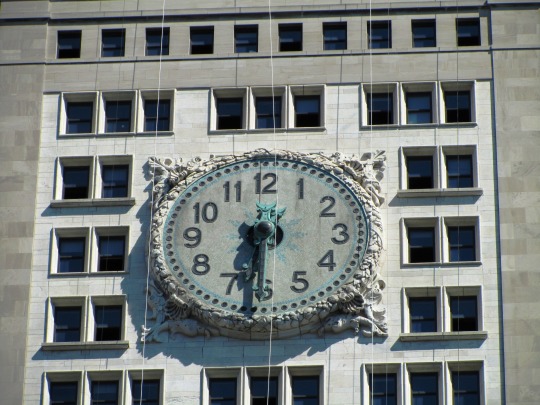
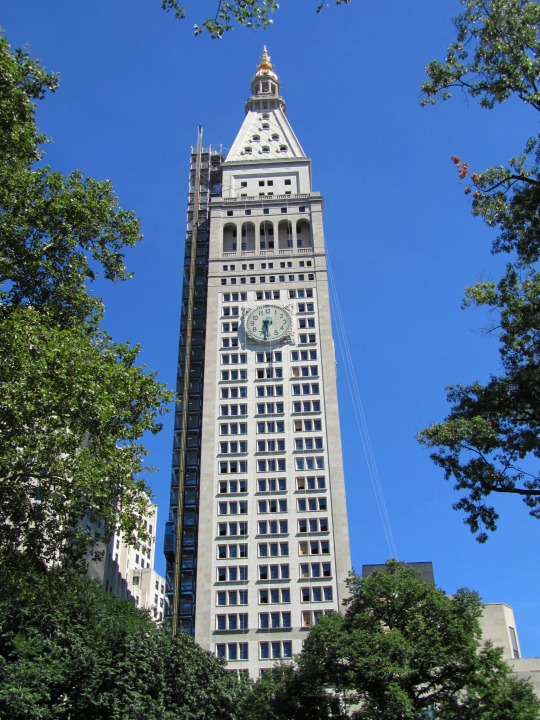
The Metropolitan Life Insurance Co was formed on March 24, 1868.
#Metropolitan Life Insurance Company Tower#Metropolitan Life North Building#Metropolitan Life Insurance Co#formed#24 March 1868#anniversary#MetLife Building#Napoleon LeBrun#Gothic Revival#1 Madison Avenue#Flatiron District#Harvey Wiley Corbett#D. Everett Waid#Art Deco#Gap Town Clock#Eleven Madison#Manhattan#New York City#architecture#original photography#cityscape#summer 2019#2018#2013#vacation#travel#Union Square#evening light
2 notes
·
View notes
Text

I am obsessed with them
#my gifs#Napoleon and josephine#napoleon#napoleon bonaparte#Josephine#josephine bonaparte#joséphine ou la comédie des ambitions#napoleonic era#napoleonic#empress josephine#19th century#first french empire#french empire#france#frev#french revolution#gifs#history#daniel mesguich#Danièle Lebrun
69 notes
·
View notes
Text
Het 'Empire' dat snel vergeten werd
Toen keizer Napoleon in 1811 Amsterdam – na Parijs en Rome de derde hoofdstad van het Franse ‘Empire’ – bezocht, trof hij het stadsbestuur in een nogal klagerige stemming aan. Emmanuel de las Cases, secretaris van Napoleon tijdens diens latere ballingschap op St.Helena, heeft verslag gedaan van de toespraak die de keizer hield, ter opmontering: “Men zegt dat u ontevreden bent: maar waarom?…
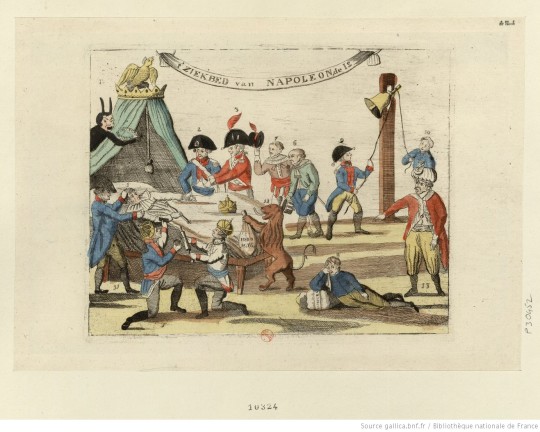
View On WordPress
#1811#Amsterdam#Bataafse republiek#Belgische Opstand#Caroline de Gruyter#departement#Empire#Europa#Franse keizerrijk#Hamburg#Holland#Hultman#Las Cases#Lebrun#Mémorial#Napoleon#nationalisme#Nederlanden#Piemont#Republiek#Rijn#Simplon#St.Helena#Vaucluse#Verenigd Koninkrijk#Willem I
1 note
·
View note
Photo

Napoleonic Europe,1799-1914
« Atlas historique », François Lebrun, Hachette–Livre, 2000.
by cartesdhistoire
92 notes
·
View notes
Text
Bessières's correspondence
This is for @flowwochair: the index of the documents in the "Fonds Maréchal Bessières" in the French National Archives. Not much about the content, unfortunately. I summarised some points that I imagined were not all that interesting to you. Please let me know if there is something you'd want to have more details on and I will look if there is more.
1) Letters and orders by Napoleon to Bessières, dating from 1796 to 1813. It’s organized by the different armies and contains mostly »official« stuff of some importance, like documents related to the double abdication of the two Spanish Bourbon kings in 1808. Murat’s name is mentioned once, in connection with one document:
copies of Napoleon's instructions to Murat on how to deal with the Spanish, 17 and 28 April 1808
Maybe also of interest: some of the documents concern the reorganisation of the troops after the Russian campaign and date as late as mid and end-April 1813, so only days before his death
2) Letters from princes of the imperial family to Bessières
Mostly interesting because a large chunk seems to be labeled »a.s.«, which I believe to mean »autographe signée«, i.e., handwritten and signed. Most correspondence of important people would have been in the hands of secretaries, with the sender merely signing them. Bessières being worthy of receiving letters that these imperial princes had written themselves hints at a special position of trust.
41 letters from Joseph Bonaparte, related to events in Spain (1808 – 1811)
2 letters (not written by Jerome himself) about uprisings in Kassel in 1813
And here you go: 29 letters by Murat, in his own handwriting, relating to the daily report on the Guard, the policy to be followed, and to military events in Spain (dated 5 August 1805 to 5 June 1808)
Followed by some stuff for me: 22 letters from Eugène de Beauharnais, in his own handwriting and »d’un caractère surtout personnel« (of primarily private nature), dated 27 January 1805 - 5 June 1808
Other than that, there are letters from Josephine, Lebrun, Hortense, Stéphanie de Beauharnais, Méneval and the secretary of Madame Mère.
The rest of this section are documents related to Bessières’s military career, decorations etc.
3) Some personal letters. The connection between them escapes me
from Bessières to his sister-in-law (?), 22 February 1808.
from Bessières to a marshal on the reorganisation of the Guard, 27 January 1813.
from Madame la Maréchale concerning her financial distress, 12 December 1813 and 12 December 1814.
Facsimile of a letter from the Marshal to his wife, after his departure for the 1813 campaign
4) Certificates, letters of service and appointment, decorations
Some documents as early as 1792 among them, but mostly bits and bobs that seem unrelated
5) Letters adressed to Bessières – Army of Italy and Army of Egypt. 55 pieces
6) Ministers' reports to the Emperor and various letters. Plenty of documents and letters among them that are neither written by or adressed at Bessières
7) Imperial Guard I (Organisation, financial reports etc.)
8) Imperial Guard II (contains one more letter by Eugène!)
9) Imperial Guard III (Holland in 1810)
10) Legion of Honour and pay. 73 pieces, 1804 to 1813
11) Russia. Letters adressed to Bessières, situation reports, mostly from before the campaign started
12) Letters from Napoleon, the imperial family, the royal family and several famous personalities. A lot of them obviously from after Bessières’s death, among them (condolation) letters to Madame la Maréchale from
Napoleon - 6 May 1813
Madame Mère – 7 May 1813
Marie Louise – 5 May 1813
Caroline Murat – 25 May 1813
Eugène Beauharnais – 2 June 1813
Joachim Murat – 8 June 1813
Also contains 18 letters from Hortense de Beauharnais to Madame la Maréchale, dated 1809 to 1813, letters from Madame la Maréchale Oudinot, from Laure Junot, from Wellington (handwritten!) and plenty more
And on a happier note: a letter by Joachim Murat dated 1 Germinal year VIII (22 March 1800)
13) Related to Bessières’s city house
14) Correspondence between Marshal Bessières and Madame la Maréchale I
3 letters from Bessières to his wife, 2 prairial-15 vendémiaire an XIV (22 January-7 October 1805)
75 letters of Madame la Maréchale to Bessières, found in the cassette of the marshal after his death, 5 January 1806-1 May 1807
29 letters of Bessières to his wife, 26 March-13 December 1808
15) Correspondence between Marshal Bessières and Madame la Maréchale II. Continuation from above
72 (? I’m not sure about the numbering here) letters from Bessières to his wife, 5 January 1809, 28 September and ... 1811
48 (?) letters from Madame la Maréchale to the Marshal, January-9 December 1811
16) Correspondence between Marshal Bessières and Madame la Maréchale III. Continuation from above
9 letters from the Maréchale Bessières to her husband, 19 March - 16 December 1812
40 letters from Bessières to his wife, 13 January 1812 - 24 April 1813
17) Related to the electoral college of département Haute-Garonne
18) Personal papers, financial documents, real estate etc.
19) Letters to Madame la Maréchale during Restauration and July Monarchy
20) Collection of autographed letters unrelated to Bessières
37 notes
·
View notes
Text
Józef Poniatowski’s women.
Part V. The rest of ladies who might have been of some interest to him
Good day everyone and let me share with the rest of information I possess on Prince Poniatowski's love interests. (Though, I have to admit, the ladies from this list were the least likely - from all the mentioned in these series of post - to have some kind of affair with Pepi.
To start I would like by Louise of Mecklenburg-Strelitz, the queen of Prussia.
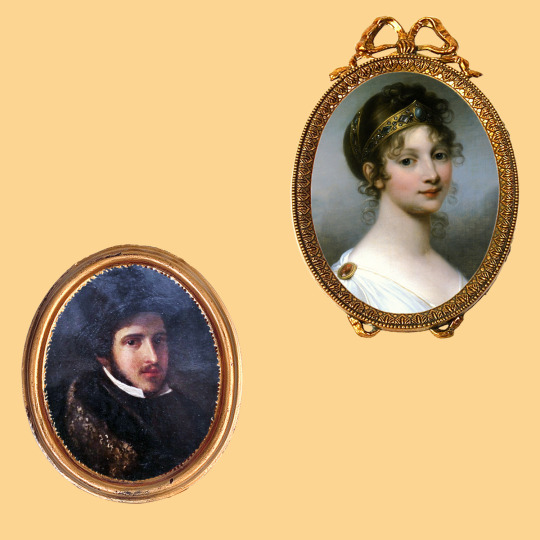
On the right - unidentified artist, miniature portrait of Prince Poniatowski, 19th century. On the left - portrait of Queen Louise by Giuseppe Grassi, 1802.
Prince Józef had the opportunity to meet the wife of the king Frederick William III at least four times, because the royal couple visited Warsaw - which had become a part of Prussia as a result of the third partition of Poland - three times, in 1798, 1802 and 1805. And in 1802 Poniatowski himself had to go to Berlin, to settle the matter of the inheritance left by his uncle Stanisław August.
According to Juliusz Fałkowski, while at Warsaw Prince Józef "…gave a ball and a dinner in the Copper-Roof palace in their honor [the King and Queen of Prussia - A.S.] and was flirting with the Queen everywhere", for which he received the star of the black eagle, although he rather "expected something else from the beautiful queen." After the departure of the royal couple, "he longed a little for the crowned beauty who had easily won his heart in passing."
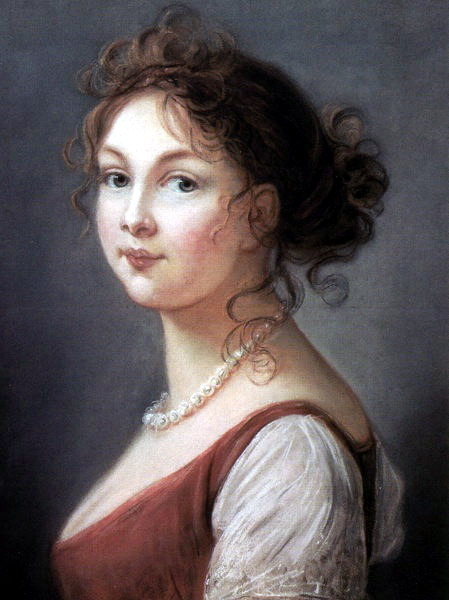
An Elisabeth Vigée-Lebrun painting of Queen Louise, c. 1801
The second source that mentions the relationship between these two is the book by Marian Brandys "Kozietulski i inni", which states (without giving sources, unfortunately) that during Pepi's visit to the capital of Prussia "… it was also said that the beautiful Queen Louise fell in love with in a knightly Pole."
However, if you ask my opinion about the likelihood of an affair between Pepi and the Queen of Prussia, I will say that in my opinion he was "flirting" her to make it easier to solve the inheritance problem. As for the fact that she could also be in love with the prince, I have no opinion because my knowledge about Queen Louise is not very great.
The second lady in today's list will be prince Józef's first cousin once removed, Anetka Potocka (née Tyszkiewicz, the daughter of Konstancja Poniatowska and a grand-daughter of prince Kazimierz, the oldest of the Poniatowski siblings).
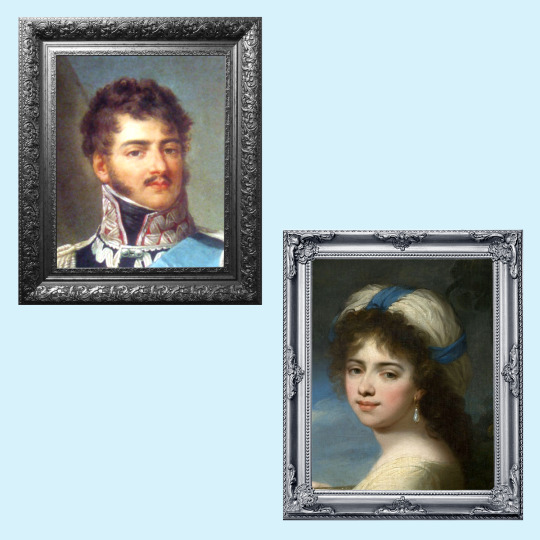
On the left - Poniatowski's portrait by Franciszek Paderewski, on the right - Portrait of Anetka Tyszkiewiczówna, Giuseppe Grassi, 1796.
Born in 1779, she was 16 years younger than Pepi, and she remained unmarried for quite a long time, becoming the wife of the Count Aleksander Potocki in 1805. (Marian Brandys, in the biography of Anetka's uncle prince Stanisław, states that some time before 1791 there was an idea to join all the Poniatowski estates marring Stanisław to his niece, but it was eventually abandoned.) The marriage brought them three children, but after 16 years Anetka asked for divorce and then wedded Colonel Stanisław Dunin-Wąsowicz.
During the times of the Duchy of Warsaw, she was a frequent guest at the Copper Roof Palace, visited Paris, witnessed Napoleon's sojourns in Warsaw, with all of those events been described later in her memoirs.
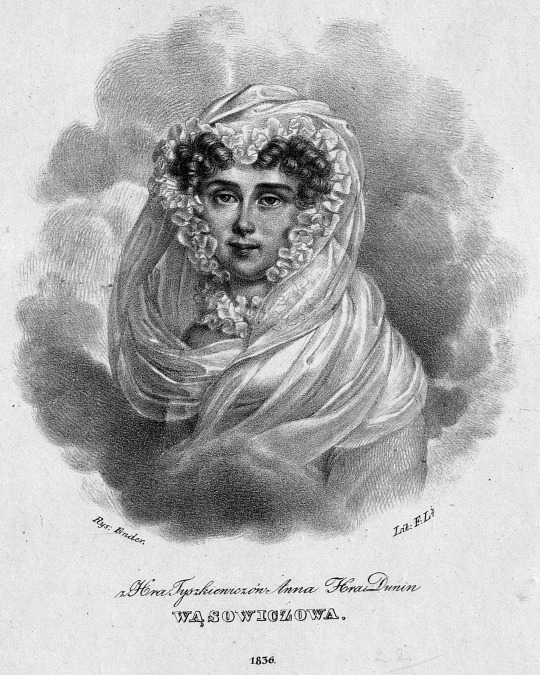
Portrait of Countess Dunin Wąsowicz, Anna née Tyszkiewicz, 1836.
As for her relationship with Prince Józef, it were her own words that made Fałkowski write that "the beautiful prince fell in love with Anetka" although "it was a platonic feeling".
"… Mrs. Aleksandrowa (Anetka Potocka - AS ) herself half-admitted thisin her old age. ''On disait alors que le Prince Joseph avait pour moi un sentiment plus tendre que l'amitié (it was said that Prince Joseph had for me a feeling more tender than friendship),' she would recalled with a dreamy expression on her face."
The second thing that leads historians to believe that Pepi could have distinguished this cousin of his from other relatives is the provision in his will, according to which she was to receive, after the death of the prince's sister, Teresa Tyszkiewicz, his favorite palace in Jabłonna near Warsaw. And when this did happen, Anetka ordered a triumphal arch to be built in the park in memory of Prince Józef.
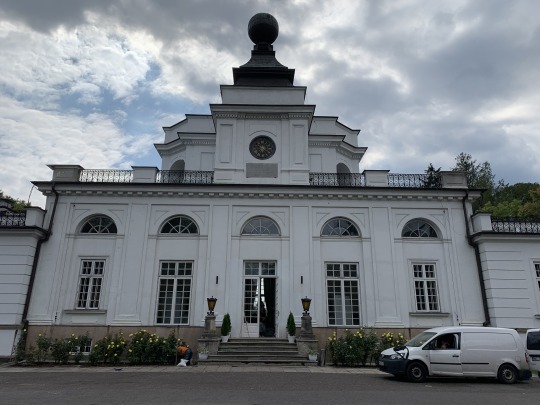
The palace in Jabłonna, 2019
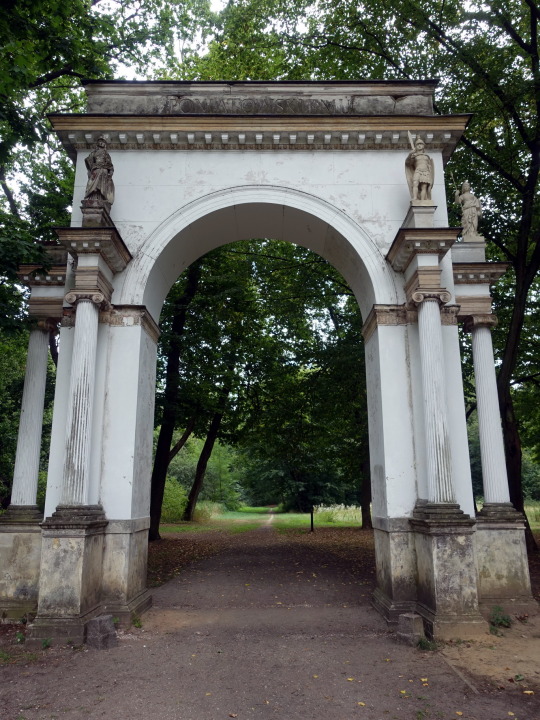
The triumphal arch from Jabłonna's park, 2019
And collage of mine is an illustration to the part dedicated to the rest of the women, whose portraits I wasn't able find. And honestly, the evidence that they might have been Prince Józef's love interests is very weak. But, since historians from time to time do mention these ladies' names, I thought them worth being included as well…
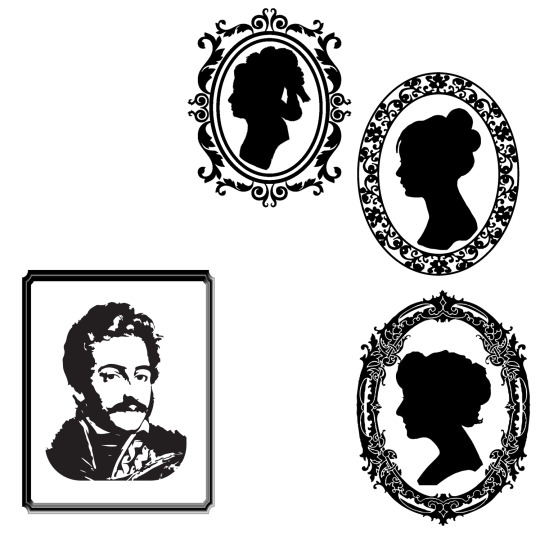
For example, in the prince's testament, together with Henriette de Vauban, Zofia Czosnowska and the above mentioned Anetka Potocka, there was mentioned Elżbieta Merlini, the daughter of Dominique Merlini, an Italian architect, the last main builder of the Polish-Lithuanian Commonwealth. But such concern for the architect's daughter may have been explained by a sense of moral debt to her father, which the prince Józef inherited from King Stanisław with the rest of the things.
Then, the list of Pepi's women sometimes complemented by another "Elżbieta" - Cichocka (although her real names were Emilia Karolina - or Katarzyna) née Bachmińska I° voto Szymanowska, II° voto Cichocka, III° voto Abramowiczowa. It is said she even sojourned in Jabłonna before 1810, until being apparently forced by Zofia Czosnowska to leave the place. After that Madame Cichocka went to Vilna, where she married her third husband. However, what IMHO should be taken into account in regards with this lady is that her second husband, Michał Cichocki, was an illegitimate son of Stanisław August, which might have made Prince Józef consider her a relative and thus take care about.
The same can be said about Madame Kicka - Józefa Martyna Rozalia née Szydłowska, who was a sister of Elżbieta Grabowska, another mistress of King Stanisław.
Sometimes the names of women who were friends and companions of Madame de Vauban are also included to the list of prince Józef's love interests. Those are: Anna Krasińska, a relative of general Krasiński and the wife of Mikołaj Oppeln-Bronikowski; Salomea Wielhorska née Dembińska; Anna Trębicka née Czerska, future wife of general Kamieniecki, and Józefa Potocka née Sollohub.
PS. As the regular visitors to the Copper Roof Palace are as well mentioned two ladies of the surname Walewska: Józefina née Lubomirska, the wife of Adam Walewski and the future wife General Witt, and Maria, the wife of Anastazy Walewski. The first of them was known for her kind of loose behavior, so presumably she might have at least flirted with Pepi; the second one is the famous Maria Walewska, but all I know about her makes me think her love for the emperor left no room in her heart for other men.
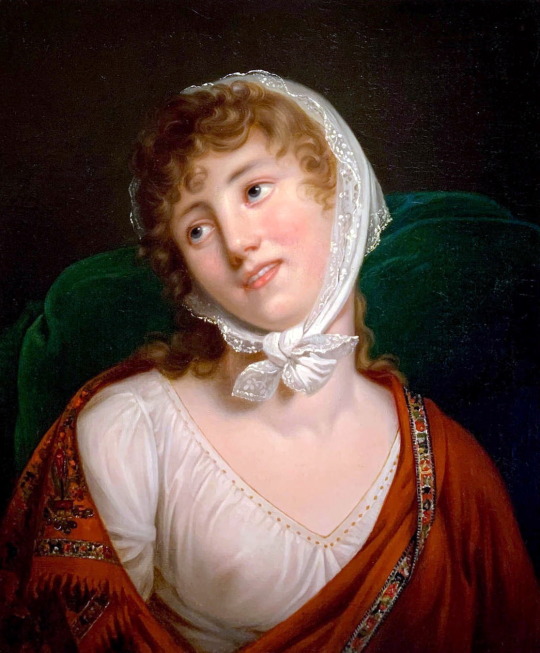
Portrait of Maria Walewska by Robert Lefèvre
#poniatowski#józef poniatowski#józef poniatowski’s women#queen Louise of Prussia#Giuseppe Grassi#Anetka Potocka#Jabłonna#Jabłonna palace#Maria Walewska#Robert Lefèvre
13 notes
·
View notes
Photo

The Engine Company 31 firehouse, New York City
#Architecture#design#decorative arts#fire station#New York City#manhattan#chateauesque#napoleon lebrun#history
73 notes
·
View notes
Text
Marengo (3/3)
No one, apart from Lebrun, has seen Desaix fall, each one too busy fighting, galvanized by the miraculous turnaround in the situation. The French dragoons slash with all their might; the infantry retakes Castel-Ceriolo; the sappers break the bridges towards which the Austrian rearguard rushed. From time to time, one can see small groups of hussars galloping by, led by Eugène de Beauharnais or Bessières, chasing, screaming, saber in hand, like the horsemen of the Apocalypse, a few late fugitives from the O'Reilly platoons and whose ghostly silhouettes, struck to death, roll in the waters of the Bormida.
At nightfall, the Austrians are completely routed because Ott has not even been able to maneuver his reserves, although they are intact. A crowd of white flags are now rising and two of Melas' generals, Zach and Saint-Julien, offer their swords to the victors. They find themselves prisoners and, with them, thirty-seven officers and one thousand six hundred and twenty soldiers.

The victory of Marengo is total, incontestable and ... unhoped for, and Bonaparte exults when writing the last of the eight bulletins which his aides-de-camp brought him during the day and which had to be modified according to the situation. Hungry, he devours with gusto a chicken that his cook has just made for him with the means at hand. However, he takes the trouble to ask Savary to go and fetch Desaix, so much is he now burning to thank him, to hold him close to his heart, there, in front of the whole army! [..]
It is now eleven o'clock in the evening.
One can no longer hear the artillery which has finally died down, only the neighing of the horses and the rattle of the dying. The last fumes of powder evaporate in the twilight; the bivouacs are improvised; the cantinières pass the veterans solid pints of wine or brandy. The veterans light their pipes, indifferent to the ballet of the surgeons who organize their makeshift operating theaters in tents where the auxiliaries repatriate the wounded as best they can. From time to time there is a cry. The freshness of the mountain begins to descend into the plain as the moon shines.

Solitary, shadow among the shadows, Savary wanders on the battlefield on which creep the disturbing silhouettes of the robbers of corpses [..]
- Desaix, where is General Desaix? he yells at every soldier he meets on his way.
Nobody answers him. So he continues, tirelessly, until, phlegmatic, a colonel of the 9th unceremoniously tells him the news:
- Desaix? Killed!
"Desaix, killed", he repeated to himself, haggard, letting himself be led to the already stripped body, only dressed in a shirt so wet with blood that it could not be taken off, this wiry little body, recognized in the darkness by the length of the hair that the scarf, falling, released in the mud of Marengo ...
[..]
Savary meditates. He is awaiting a visit from the First Consul, who has been notified; not him, he did not have the courage. Wiping a tear from his face stained with sweat, dust and powder, he shivers in the cold of the night and adjusts his old woolen hood over his shoulders.

Long later, Chateaubriand would write in his Mémoires d'Outre Tombe: "The men who disappear young are vigorous travelers; they quickly make a road that less strong men complete with slow steps."
Gonzague Saint-Bris - Desaix, le sultan de Bonaparte
#napoleonic#gonzague saint bris#desaix le sultan de bonaparte#battle of marengo#louis charles antoine desaix#anne-charles lebrun#eugène de beauharnais#jean baptiste bessières#napoléon bonaparte#anne jean marie rené savary#aftermath of battle
31 notes
·
View notes
Text
Charles Benjamin Ullmo, redeemed on Devil's Island.
Charles Benjamin Ullmo, redeemed on Devil’s Island.
The dreaded ‘Penal Administration, French Guiana’ is far more associated with cruelty, inhumanity and death than with survival and redemption. That said, there were exceptions to the rule and disgraced French naval officer Charles Benjamin Ullmo is one of them. Condemned to Guiana for life after trying to ransom stolen military secrets, Ullmo didn’t look like the best candidate for redemption,…

View On WordPress
#Albert LeBrun#Albert Sarraut#bagnards#bagne#Charles Benjamin Ullmo#Charvein#cmap du morts#crime#crime and punishment#Devil&039;s#devil&039;s island#devourer of men#Dry Guillotine#Emperor Louis-Napoleon III#Evenos#France#Francis Lagrange#French Navy#Gaston Thomson#Germany#Godebert#guillotine#Henri Charriere#History#Inco&039;s#Incorrigibles#Isles-du-Salut-Islands of Salvation#l&039;affaire Ullmo#la guillotine seche#Lyon
0 notes
Photo

Portrait of Giuseppina Grassini (1803). Élisabeth Louise Vigée Le Brun (French, 1755-1842). Oil on canvas. Musée Calvet.
Painted in London where Mme Vigée-Lebrun was staying after the Peace of Amiens. The model is the famous Grassini, “first singer of His Majesty the Emperor and King.” Her career, which began at the age of sixteen, took her from Venice (Pirro de Paisiello, 1792) to Naples, where she sang in Artemisia de Cimarosa for the wedding of Prince Francis of Bourbon. In 1800, she conquered Napoleon by singing a vibrant Marseillaise at La Scala, to celebrate the entry of the French into Milan.
65 notes
·
View notes
Photo










The Metropolitan Life Insurance Co was formed on March 24, 1868.
#Metropolitan Life Insurance Company Tower#Metropolitan Life North Building#Metropolitan Life Insurance Co#formed#24 March 1868#155th anniversary#MetLife Building#Napoleon LeBrun#Gothic Revival#1 Madison Avenue#Flatiron District#Harvey Wiley Corbett#D. Everett Waid#Art Deco#Gap Town Clock#Eleven Madison#Manhattan#New York City#architecture#original photography#cityscape#summer 2019#2018#2013#vacation#travel#U
9 notes
·
View notes
Text

Joséphine ou la comédie des ambition
#Napoleon and josephine#Joséphine ou la comédie des ambition#Napoleon#Josephine#napoleonic#vintage#napoleon bonaparte#napoleonic era#first french empire#19th century#french empire#art#frev#french revolution#Danièle Lebrun#vintage cinema#cinema#film stills#French cinema#Daniel Mesguich#empress josephine#josephine bonaparte#josephine de beauharnais
26 notes
·
View notes
Text
From volume six of Philippe de Ségur’s Histoire et mémoires:
[Duroc was] the only favorite, perhaps, who was loved, respected, and greatly regretted, because, at the pinnacle of grandeur, he remained simple, and, in the highest favor, always modest. Napoleon’s most intimate confidant, his most devoted servant, his firmest friend, they were so closely associated by nature, by habit, by everything, that we no longer imagined that they could live apart: it seemed to us that fate could not strike one of them without mutilating the other!
Nevertheless, the Emperor, at the end of the day on May 22nd...advanced towards some high ground. Growing more and more impatient, he began to pass his artillery, even his infantry, despite his soldiers’ muttering. These brave men reproached his foolhardiness at the top of their voice when a last cannonball, fast approaching on his right, struck a tree and ricocheted into those who followed him. A long and horrible cry of pain was heard, and then a second stifled groan: this unlucky ball had cut a general of engineers in half, and at the same time torn through the grand marshal’s gut and broken his left hip.
Duroc fallen! A sudden murmur rose above the dust and noise of the march. The aide de camp on duty ran to the Emperor: it was Lebrun, duke of Piacenza, who it was said had held in his arms, dying, at Marengo, another friend of Bonaparte, the illustrious Desaix! His emotion, when speaking in a low voice to the grand equerry, attracted the Emperor’s attention. Napoleon enquired, Caulaincourt hesitated; and, when he was finally forced to announce such a terrible loss, it was so great a misfortune for the Emperor that he refused to believe it. Even then the enemy was retreating, it was a parting shot that tore from Napoleon his surest and most useful friend.
A few moments later, Napoleon was in a little room in a peasant’s house, next to his dying friend, leaning over him, his hand in Duroc’s, who clutched it to his chest! The Emperor’s first words were: “Well! So? Is it possible?” And, appalled at the sight of the half-open body, he lost his voice for some minutes through his excessive sorrow! In his stupefaction, for the first time he appeared overwhelmed; and his tears, which could be seen falling, were all that spoke. Duroc, in contrast, exclaimed in an emphatic and moving voice, “Ah! Sire! The last shot of the day!” And he expressed his unhappiness at parting from one he had so loved, and to whom he had been so devoted. After which, adding to his last wishes for Napoleon’s glory, happiness, and rest to come, some firm and all the more heartbreaking farewells, he begged him to tear himself away from such a cruel spectacle!
For his part the Emperor, still dismayed, refused to accept his farewells, to show that he had no hope, and to begin such a cruel separation. But finally, overcome by the evidence and by such courage, he asked him to think of his family and whether he had anything to ask of him on their behalf. “No!” the grand marshal replied, “No, Sire, with you, I know, they’ll want for nothing! What’s more, my affairs are in order, I need nothing; and I die an honest man!” Then, urging him a second time to go, he repeated the same farewells! But Napoleon still could not resign himself; falling again into his previous stupor, he fastened on his unfortunate friend one of those long and profound looks that, in those solemn and final moments, seemed to want to, in defiance of fate, indissolubly merge their souls; striving more than ever to tighten so many bonds on the verge of breaking, and to gather everything it was possible to wrest from inexorable death!
Yvan, Berthier, Soult, Caulaincourt, the duke of Piacenza, Count Canouville, and Bonneval, Duroc’s aide de camp, were there; all of them, turning aside, wept. Berthier convulsively pulled Canouville to him. “Oh, my friend!” he cried, “There’s our fate; this awful, eternal war will kill all of us!” Duroc, always with the same strength, again said to the Emperor, “Farewell, Sire, farewell! That’s enough! Don’t stay any longer in this atmosphere of death!” But Napoleon could not overcome his dismay: his knees buckled, Yvan noticed this; he said to Marshal Soult: “Help him up, he’s fading!” and the marshal wanted to pull him away. Then, the Emperor, clasping for the last time that dying and devoted hand which he still held, uttered, in a suffocated voice, that cruel farewell! He added: they would see each other again in a better world! “Yes, Sire,” the grand marshal replied, “In a world where we’ll never leave each other!”
Duroc suffered until the next day, rebuffing any hopes, and demanding to be helped to die more quickly. Intimately attached for twelve years to this unfortunate chief, I have religiously gathered, on many occasions and from most of the witnesses, these sad details; they are exact and complete; all those who say or write more about this last meeting are incorrect; some other inspiration than the truth, or the necessities of the era, dictates to them.
Napoleon, during that cruel night, bivouacked near the hut where his grand marshal struggled so painfully for his life. A battalion of the Guard came and surrounded him. There, as the hours passed, those old grenadiers showed each other their unhappy Emperor, sitting in front of his tent, his hands clasped, his head bowed, and in the most mournful silence! Only Drouot dared approach him, and asked for his orders. “Everything tomorrow!” were the only words that escaped Napoleon’s oppressed breast. And those veterans, all busy stirring their fires, looked at him from time to time and, moved, exclaimed, “The poor man!”
The next day, when it was all over, he ordered that the mutilated body be transported to Paris; he wanted him to be buried beneath the dome of the Invalides. Then, before returning to the recommencing battle, he himself charged the pastor of Mackersdorf to have placed in the spot where Duroc had expired, a monument with the inscription, “Here, General Duroc, duke of Friuli, grand marshal of the palace of Emperor Napoleon, struck by a cannonball, died in the arms of his Emperor and friend!”
In his grief he overlooked nothing. He summoned the place’s magistrate; and, in front of him, he bought the house, gifting it to its inhabitants with the condition that they watch over it, father to son, safeguarding a memory he wished to render eternal!
40 notes
·
View notes
Photo

Attributed to Francois Joseph Kinson (b.1775 - d.1859), 'Portrait of General Charles Lebrun (b.1775 - d.1859)', oil on canvas, no date (1800s), Flemish/French, for sale for 28,000 EUR at Galerie William Diximus; Saint-Ouen, France.
Anne-Charles Lebrun served as Napoleon's Aide-de-Camp in a number of campaigns, and became General in 1807. He is best known however as Desaix's Aide-de-Camp, whom he caught as he fell from his horse, mortally wounded, at the Battle of Marengo, 14 June 1800. (x)
#francois joseph kinson#known artist#unknown artist#known sitter#oil on canvas#1800s#flemish#french#galerie william diximus#saint ouen#battle of marengo#military
14 notes
·
View notes
Text
Rue St.Nicaise
As @tairin and @usergreenpixel were so kind to translate the manga version of the infernal machine plot for us, I thought maybe somebody is interested in the sources behind it. This is another one of those occasions where there’s different reports from different witnesses.
This is taken from Rapp’s memoirs:
The affair of the infernal machine has never been properly understood by the public. The police had intimated to Napoleon that an attempt would be made against his life, and cautioned him not to go out. Madame Bonaparte, Mademoiselle Beauharnais, Madame Murat, Lannes, Bessières, the aide-de-camp on duty, and lieutenant Lebrun, now duke of Placenza, were all assembled in the saloon, while the First Consul was writing in his closet. Haydn's Oratorio was to be performed that evening: the ladies were anxious to hear the music, and we also expressed a wish to that effect. The escort picquet was ordered out; and Lannes requested that Napoleon would join the party. He consented; his carriage was ready, and he took along with him Bessières and the aide-de-camp on duty. I was directed to attend the ladies. Josephine had received a magnificent shawl from Constantinople, and she that evening wore it for the first time. "Allow me to observe, Madame," said I, "that your shawl is not thrown on with your usual elegance." She good humouredly begged that I would fold it after the fashion of the Egyptian ladies. While I was engaged in this operation, we heard Napoleon depart. "Come, sister," said Madame Murat, who was impatient to get to the theatre; "Bonaparte is going." We stepped into the carriage: the First Consul's equipage had already reached the middle of the Place Carrousel. We drove after it; but we had scarcely entered the Place when the machine exploded. Napoleon escaped by a singular chance. Saint-Regent, or his French servant, had stationed himself in the middle of the Rue Nicaise. A grenadier of the escort, supposing he was really what he appeared to be, a water-carrier, gave him a few blows with the flat of his sabre, and drove him off. The cart was turned round, and the machine exploded between the carriages of Napoleon and Josephine. The ladies shrieked on hearing the report; the carriage windows were broken, and Mademoiselle Beauharnais received a slight hurt on her hand. I alighted, and crossed the Rue Nicaise, which was strewed with the bodies of those who had been thrown down, and the fragments of the walls that had been shattered by the explosion. Neither the Consul nor any individual of his suite sustained any serious injury. When I entered the theatre Napoleon was seated in his box, calm and composed, and looking at the audience through his opera-glass. Fouché was beside him. "Josephine," said he, as soon as he observed me. She entered at that moment, and he did not finish his question. "The rascals," said he, very coolly, "wanted to blow me up. Bring me a book of the Oratorio."
And this is the same story from Hortense’s memoirs and perspective:
An oratorio by Haydn had long been announced, the music of which was to produce the most beautiful effect. The day of the performance arrived and we prepared to go to the Opera. The Consul, who had been sitting by the fire after dinner, did not seem inclined to go out. We were all dressed up and waiting impatiently for him to make up his mind. My mother urged him: "It will distract you, you are working too hard". The Consul closed his eyes and answered nothing. Finally, he told us that we had only to leave, that he would stay. Then my mother wanted to keep him company; it was a contest between them which ended with the horses being put to the carriages. A moment before getting into his coach, the Consul criticised my mother's toilet, and this criticism saved our lives. Having wanted to communicate it to Caroline and the aide-de-camp Rapp, she allowed some time to elapse, so that our carriage, which always followed immediately after that of the Consul, was this time separated from it by a small distance. As we entered the Rue Saint-Nicaise, a violent commotion was felt. The carriage seemed to get lifted off. The windows broke and fell on us. "It is against Bonaparte," cried my mother, and she fainted. Our horses, frightened by the noise, suffocated by the gunpowder, had reared up, taken the reins and carried us to the gate of the Tuileries.
Caroline, though far along in her pregnancy, kept her wits about her. She tried to reassure my mother. She had seen a very big fire. A house had collapsed. It couldn't have been against her brother. But my mother kept repeating: "It is against Bonaparte". I also tried to calm her down! I explained to her that our carriage alone had been attacked, that the strength of the concussion was proof of this and that the mistake had saved the Consul. A piece of the glass hurt my hand slightly.
Rapp was the first to rush into the Rue Saint-Nicaise. He saw men, women, children, dead or wounded, scattered limbs, rubble ready to bury him, but the cries of the unfortunate expiring people could not stop him. He wanted to reach the Consul and trembled to find him. One of the guards of the escort, sent to us, allayed our fears by informing us that the fire had only broken out as the Consul was leaving the street and that he had arrived at the Opera without accident. We went there by another street. My mother was not master of her strong emotion on seeing her husband again, but he, calm and tranquil, to deceive her alarm: "What have you," he said. "What has happened? It is nothing." And all this with as much composure as if he had not guessed that it was yet another blow directed against him.
So, it remains unclear who had had the good idea to critisize Josephine’s shawl.
#napoleon bonaparte#rue st.-nicaise#infernal machine#hortense de beauharnais#caroline murat#josephine bonaparte
11 notes
·
View notes
Photo

(USA-NYC) [OC] Napoleon LeBrun & Sons’ Met Life Tower via /r/architecture https://ift.tt/3alvpsx
2 notes
·
View notes